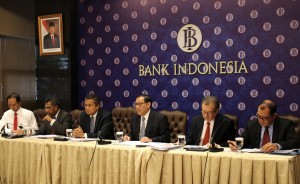Bank Indonesia Regulation No. 17/3 /PBI/2015 on the Obligation of the Use of Indonesian Rupiah in the territory of the Republic of Indonesia (“PBI 17/3/PBI/2015“) is a new legislation enacted by Bank Indonesia which is based on the law that has been previously promulgated, namely Law No. 7 of 2011 on the Currency (“Law No. 7/2011“). The aim and objective of this regulation is basically to maintain the stability of Indonesian Rupiah’s exchange rate and to ensure the concerned party to use Indonesian Rupiah in any finance transaction occurring in Indonesia.
General Provision
Party to apply this regulation is a party who is classified in the category of:
- individual;
- corporate (group of people/legal entity/non legal entity).
Furthermore, cash and non-cash transactions are the type of finance transaction in which the party is obliged to use Indonesian Rupiah. Such transaction shall include the following conditions:
- transaction that has the purpose of payment;
- settlement of other obligations that shall be filled with money; and/or
- other financial transactions.
Exemption
There are several exceptions on the obligation of the use of Indonesian Rupiah in finance transaction, thus making the obligation not applicable to transactions such as:
- Certain transactions within the framework of the implementation of the state revenues and expenditures budget (described in Article 6):
(a) the payment of foreign debt;
(b) the payment of domestic debt in foreign currency;
(c) spending on goods from abroad;
(d) capital expenditures from abroad;
(e) revenues derived from the sale of state bonds in foreign currency;
(f) any other transaction in the framework of the implementation of the state revenues and expenditures budget.
- The acceptance or the grant from/or to abroad
This can only be done by the grantee or the grantor, one of which is domiciled abroad.
- International trade transactions
Transaction that falls within this category is export or import of goods into or from the outside of the territory of the Republic of Indonesia.
- Bank saving in foreign currency
This saving can only be made by bank conducting business in the form of deposit or withdrawal of foreign currency.
- International funding transactions
Transactions can only be carried out by the receiver or giver of the funding, one of which is domiciled abroad. For example, foreign exchange transactions conducted between Bank and foreign party. In this case, the Bank shall be subject to the provisions stated on foreign exchange transactions.
Moreover, exceptions on the obligation of the use of Indonesian Rupiah on other foreign exchange transactions are also specified which include:
- business activity in foreign currency performed by the Bank under regulations governing commercial banking and Islamic banking;
- transaction of negotiable paper issued by the Government in foreign currency in the primary market and secondary market under regulations governing letter of state indebtedness and Shari’a state negotiable paper; and
- Other transactions in foreign currencies carried based on the regulation.
Prohibition and Other Liabilities
The concerned party is prohibited to decline Indonesian Rupiah in which its function is being intended as a means of payment in financial transactions. However, these provisions shall be excluded if:
– there is doubt on the authenticity of Indonesian Rupiah;
– there is a written agreement concerning the payment in foreign currency.
The parties/businesses men are required to include the price of the goods/services only in Indonesian Rupiah to support the implementation on the obligation of the use of Indonesian Rupiah.
The Authority of Bank Indonesia
Bank Indonesia has its authority in supervising the compliance of the parties on the obligation of the use of Indonesian Rupiah in Indonesia, inter alia:
(i) request a report, information, data, and/or supporting documents, with or without involving the relevant agencies;
(ii) perform direct supervision on any party; and/or
(iii) appoint another party to carry out research in the context of monitoring the compliance of each party.
With respect to this, the concerned party is obliged to submit report, information, or data needed by Bank Indonesia.
Sanctions
- Sanction against violation on the obligation to use Rupiah for cash transactions and prohibition on declining Rupiah
The offender shall be subject to criminal sanction in the form of a maximum of 1 (one) year confinement and a maximum fine of Rp 200,000,000.00 (two hundred million Rupiah).
- Sanctions against violation on the obligation of the use of Indonesian Rupiah for non-cash transactions
The offender is imposed with an administrative sanction in the form of (i) a written warning; (ii) financial penalty of 1% (one percent) of the value of the transaction, with a maximum of Rp 1,000,000,000.00 (one billion Rupiah); (iii) prohibition to be involved in the payment transaction.
- Sanctions against violation on the obligation of an inclusion of the price tag of the goods/services in Indonesian Rupiah and obligation of the submission of report, information, and data
The sanction for this is a written warning.








